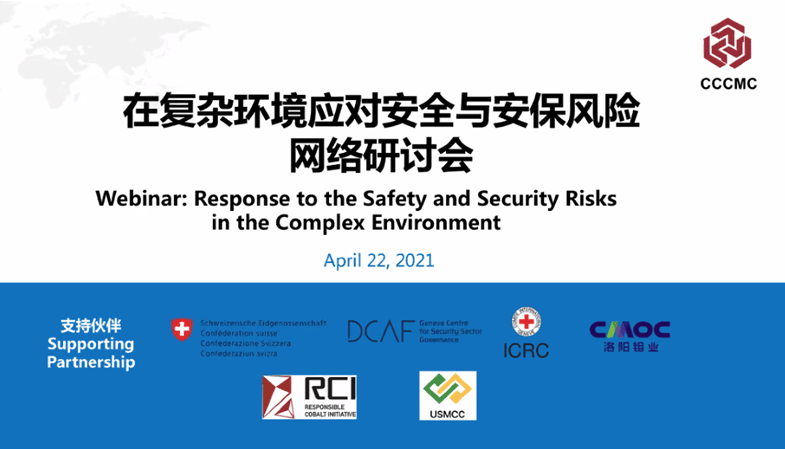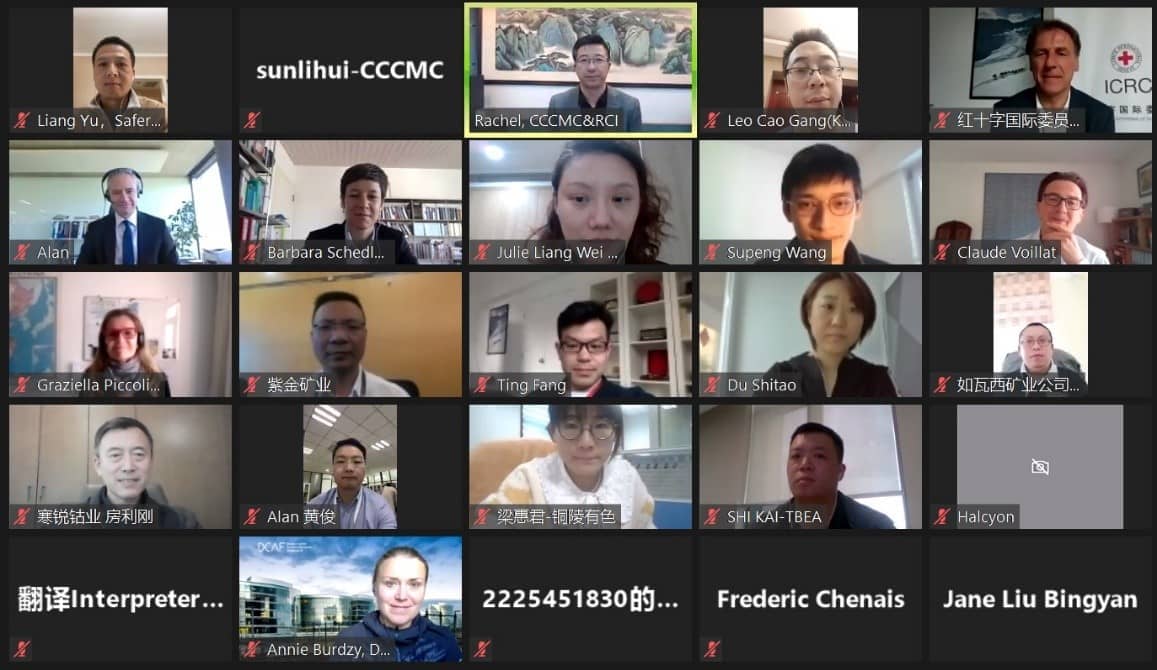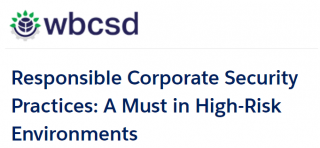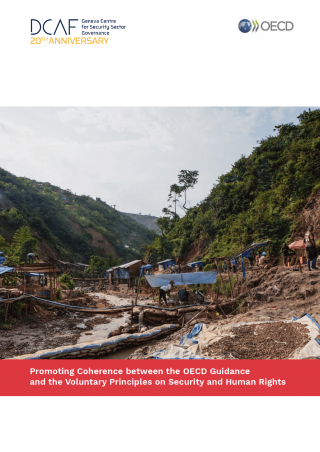First-ever outreach event for Chinese companies on the Voluntary Principles on Security and Human Rights (VPs)

On 22 April 2021, DCAF and ICRC organized an outreach event to raise awareness of the VPs among Chinese companies. The event was jointly organized with the China Chamber of Commerce of Metals, Minerals & Chemicals Importers & Exporters (CCCMC) and the Swiss Federal Department of Foreign Affairs. The webinar:
- introduced the VPs to Chinese business actors,
- presented the multi-stakeholder working approach and good practices enshrined in the VPs to Chinese stakeholders, and
- explored opportunities for deeper engagement of Chinese companies and other stakeholders with the VPs and their approach for responsible security practices.
Joined by some 60 company, government and civil society representatives, the webinar was opened by Mr. Lihui Sun, Director of CCCMC, who explained how the topic is relevant to Chinese companies and how this webinar fits with CCCMC’s work and priorities.
Ms. Barbara Schedler, Deputy Head of Peace and Human Rights Division at Swiss Federal Department of Foreign Affairs, introduced the VPs and Voluntary Principles Initiative, underlining why they are important to companies.
Ms. Julie Liang, Director of ESG from China Molybdenum, shared the company’s approach to responsible security practices and links to the VPs in field practices from the perspective of a Chinese company.
Finally, as Observers to the VPI, DCAF and the ICRC (represented by Mr. Alan Bryden and Mr. Jacques Pellet respectively), highlighted some of the tools developed in the DCAF-ICRC partnership and discussed how company engagement in field-level working groups is a significant way to implement responsible security practices.
This webinar offered an important opportunity to promote best practices and encourage win-win exchanges between Chinese business stakeholders and entities with rich experience in the work of the VPI. Through this virtual webinar, DCAF and ICRC have strengthened awareness among Chinese companies not only of the tools they developed, but also on ways companies can engage in multistakeholder processes to promote the VPs with this significant stakeholder group.
What kind of tools and guidance exists to support Chinese companies?
Chinese companies operating in complex environments encounter a range of security challenges that can undermine their operations and reputation, the safety of personnel and the security and human rights of local communities. One of the key strengths of the VPI lies in the space it creates for companies, governments, and civil society organizations to share the experience. This takes place not only during roundtable meetings such as this one, but increasingly at the national level through dedicated multistakeholder in-country working groups. DCAF and ICRC facilitate these exchanges, notable with working groups on the ground in different contexts where Chinese companies operate, such as the Democratic Republic of Congo.
DCAF and ICRC have also translated the Toolkit on Addressing Security and Human Rights Challenges in Complex Environments into Mandarin. The Toolkit helps companies take into account security issues within their systems, policies, and processes under a prevention-based logic. It helps companies organize their security arrangements with host governments, public and private security, and communities. The Toolkit is available here: www.securityhumanrightshub.org/toolkit/.
DCAF and ICRC’s workstream on promoting responsible business conduct among Chinese companies was solidified in 2019 with the signing of a framework agreement with the CCCMC. The CCCMC has a membership of more than 6,000 foreign trade companies. DCAF and ICRC are working with the CCCMC to develop and promote tailored training tools to help Chinese companies identify, reduce and avoid risks.





